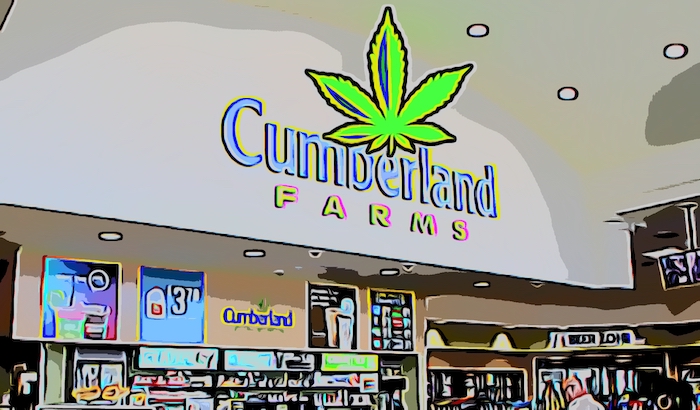
If liquor license limits impact the number of dispensaries, what could an upcoming ballot question deliver?
On the statewide political front, CommonWealth reports,
The Massachusetts Package Stores Association is the sole funder behind a ballot question that would increase the number of beer and wine licenses one entity can hold from nine to 18, while reducing the number of hard liquor permits. The question is being billed as a compromise alternative to a proposal made by Cumberland Farms in 2019 that sought to eliminate the license cap. The Massachusetts Package Stores Association put $404,000 into the effort last year, almost all to pay an agency to collect signatures.
And here’s why that’s important for the cannabis industry … As David Rabinovitz figured out and reported for us in 2019, a shift in liquor license caps could also impact the number of cannabis licenses, which is absurdly based on the booze license limit. From that piece:
Of the Commonwealth’s 351 communities, 260 voted Yes on the 2016 ballot question #4 that legalized adult-use (recreational) of marijuana, and very few of those municipalities have voted to allow more retail stores than the legally mandated minimum. Cities and towns can only allow less than the legally mandated minimum store count if they hold a municipal-wide vote.
Once upon a time, Massachusetts law limited retail liquor license ownership to three licenses per owner. That wasn’t a bad deal for liquor store owners, but supermarket chains couldn’t sell alcoholic beverages across their full system. In 2006, the supermarket chains squared off against the Massachusetts Package Stores Association to challenge the law with a referendum question. The Sale of Wine by Food Stores Initiative was defeated on the November 2006 ballot, but grocery stores licked their wounds and returned to the battle in 2011 with a new proposed question.
On the second attempt, the sides worked out a compromise with the state legislature, resulting in a gradual increase in the number of liquor licenses that can be held by a single company: two additional licenses in 2012, two in 2016, and two more in 2020. Stated differently, three became five, five became seven, and on Jan 1, 2020, seven becomes nine. Beer and wine wholesalers and supermarkets agreed not to push a fresh challenge to the store count until 2021 at the soonest, while convenience stores were not part of that battle or the ensuing truce.
Enter Cumberland Farms, which operates 939 convenience stores, 206 of them in Massachusetts (the company was acquired by British convenience store giant EG Group earlier this year). With its massive network, Cumberland Farms apparently wants to sell more alcoholic beverages and has successfully placed a question on the 2020 ballot that could lift the state’s cap on the number of liquor licenses that can be owned by a single retailer, and also forge a new class of beer and wine license for food stores… and that is where the company’s plans may seriously impact the future of cannabis retail in Mass.
Because liquor licenses are governed by the same law (M.G.L. c.138 Section 15) that is used to calculate the minimum number of marijuana retail outlets, [such] proposed ballot question[s] could increase minimum marijuana store counts in many communities—could, not will. Most communities have an odd number of carry-out liquor licenses—odd meaning not evenly divisible by five.
This time is a different situation, no doubt. We’ll have to see how it goes. But barring some dramatic change to the law, which legislators are happy to make happen when they don’t approve of passed ballot measures, this one will be left up to the people. After that, the bean counters can determine where the chips should fall and how many dispensaries we will end up having in Mass.

























